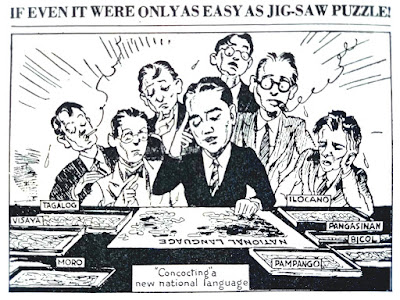I received an email from GM Lilet sharing to me and to all of our readers his thoughts and ideas on chess. A good one GM Lilet!
Here it is:
"Not the will to win, but the will to prepare for a win"
When i was a teenager, i used to watch the 700 Club of Pat Robertson. I have seen many athletes giving testimonies about God's goodness in this TV show. But what struck me the most is U.S. swimmer John Naber, a 1976 Olympic champion. "Let us try to use man to reflect the glory of God," he said. And he further added:"It is not the will to win, but the will to prepare for a win." I immediately wrote it at the second page of my 1976 Sahovski Informator. Since then, it has been my guiding principle in chess and in life. You may have all the will to win in your games, but if your preparation is lacking, you will not succeed. That is the hardest part of all, the willingness to prepare, to study hard, to train hard.
"Practice makes perfect"? No! CORRECT practice makes perfect! Perfectly true in chess.
A tale of two brothers
As I was preparing my two sons for the 2008 National Age Group Chess Tourney, I saw two contrasting characters, one who has the willingness to prepare, and one who has not. The older of the two is a UAAP Board 4 Gold medalist in the Juniors Division, scoring 10.5 in 11 games. He was so confident of himself that he thought he did not need to prepare hard for the Nationals. He was in for a big shock. After 5 games and facing lower rated opponents, he only has 1.5 points. With 4 rounds to go, I decided to stop the bleeding. I told him to rest and to resume serious chess training after a week.
My youngest son, aged 10, prepared hard for this tournament. He will sit in front of our PC for hours, and when his eyes got tired, it is the time to practice blitz games (3 minute chess) with his 2 older brothers. In fact he was so dedicated that I knew deep in my heart that he will win the Nationals. I actually planned to field him in the 14-under bracket, not to win but to elevate his level of play. But I changed my plans to show to his sponsors that he can win in his age group.
Preparations and Judgment day
While my sons are studying endgames or solving tactical exercises, I always play Mozart, Beethoven, or Bach in the background. I feel classical music helps in their studies. Vitamins and mineral supplements aside from fruits and vegetables are important parts of their diet. Walking in the morning, while accompanying their mother to the market is their form of exercise. The day before the Nationals, we did not train anymore but instead played word games and watched Mr. Bean's dvd. During judgment day, actually the tourney lasted for 5 days, I did not go with my sons in order not to put any undue pressure on them. I stayed at home, did some laundry, and prayed that my sons will do well. I also remember the advice given by Coach Leopold Lacrimosa, a US scholastic chess coach, i.e., to eat lightly during tournaments, avoiding sugars and drinking water or green tea instead.
Coach Leopold's observation in the US the same as mine here in our country
"One of the biggest problems I see as a coach at scholastic tournaments is that before and in-between rounds, instead of focusing on their next game, many children are busy running around, chasing each other, playing ball or stupid video games. Yet, those same children wonder why they can not win a prize. Once you realize that chess tournaments are serious business and begin to prepare for it as such, both before and during the event, you will then begin to see an increase of wins against your opponents."
"Chance favors the prepared mind." - Louis Pasteur
gm lilet


No comments:
Post a Comment